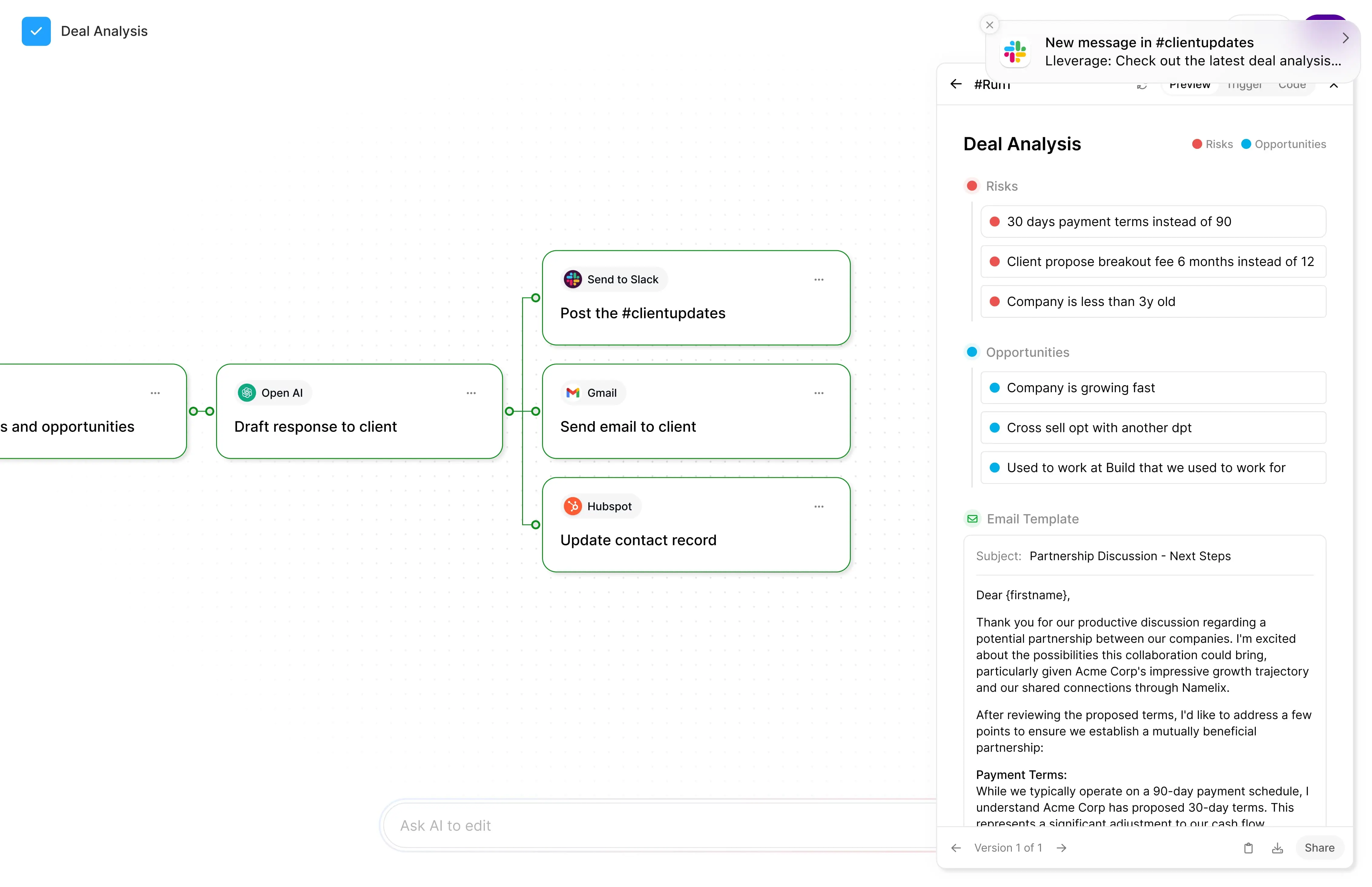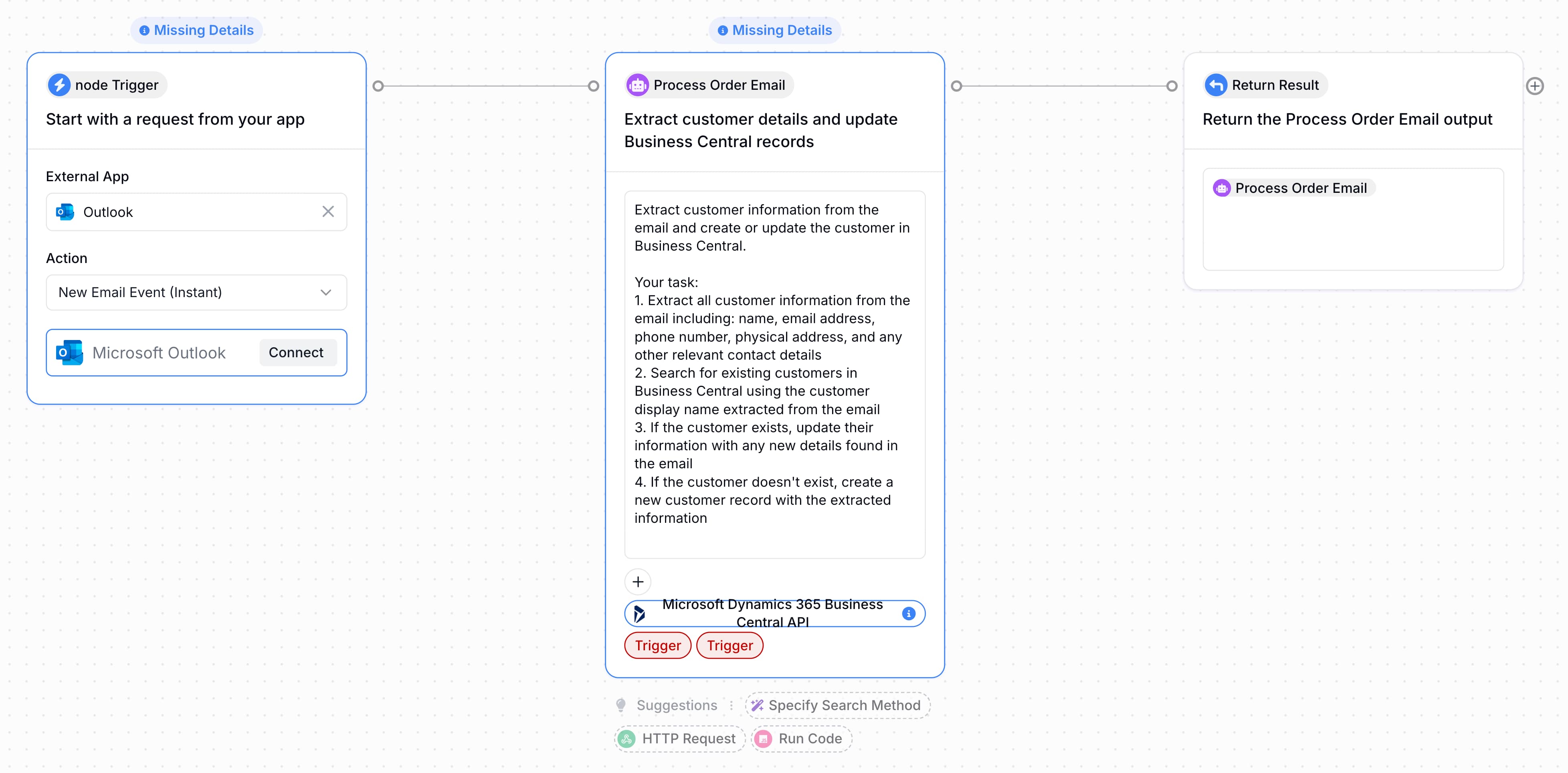AI Automation in the Netherlands: How Dutch Businesses Are Leading Europe's Automation Revolution in 2026
The Netherlands leads Europe in AI automation with 95% of organizations running AI programs. This guide explores how Dutch businesses are transforming operations, features real case studies, government investment of €276 million, and provides practical implementation steps for companies looking to automate their processes in 2026

Picture this: You walk into a typical Amsterdam office in 2026, and something remarkable is happening. Instead of employees drowning in spreadsheets and manual data entry, they're engaged in strategic planning, creative problem-solving, and meaningful customer relationships. The tedious work? It's all been automated by AI.
This isn't science fiction. It's the new reality for Dutch businesses that have embraced AI automation.
The Netherlands has quietly positioned itself as Europe's AI automation leader, with 95% of organizations running AI programmes - the highest adoption rate in Europe. But here's what's really fascinating: while everyone talks about AI taking jobs, Dutch companies are discovering something different. AI automation is creating new opportunities, freeing human talent for higher-value work, and driving unprecedented productivity gains.
After analyzing the latest research from leading institutions and speaking with hundreds of tech leaders across the Netherlands, I've uncovered some remarkable trends that every business leader should know about. From Amsterdam startups to traditional manufacturers, Dutch companies are transforming their operations in ways that would have seemed impossible just two years ago.
The Current State of AI Automation in the Netherlands
Let's start with some eye-opening statistics that reveal just how far ahead the Netherlands is in the AI automation race.
The Numbers Are Staggering
The number of Dutch adults using artificial intelligence (AI) tools daily has surged by 500,000 in just six months, bringing the total to more than 3 million, according to recent research by Newcom. That's nearly one in six Dutch adults using AI daily.
But the workplace adoption tells an even more compelling story:
- 95% of Dutch organizations are running AI programmes - the highest rate in Europe
- 48 percent of companies with 500 or more employees were using one or more AI technologies, compared with only 8 to 13 percent for companies with ten to 50 employees
- The Artificial Intelligence market in the Netherlands is projected to grow by 28.56% (2024-2030) resulting in a market volume of US$8.67bn in 2030
The Generational Divide
What's particularly interesting is the demographic breakdown. Two-thirds of Gen Z respondents now use AI tools daily, marking a dramatic shift from six months ago when younger workers were more likely to view AI as a potential job threat.
This generational embrace of AI is creating a unique dynamic in Dutch workplaces, where younger employees are becoming AI champions, helping their organizations discover new automation opportunities.
Beyond the Hype: Real Business Results
While consumer AI adoption grabs headlines, the real revolution is happening in business operations. 23 percent of people in the Netherlands aged 12 years and above have created texts, videos or images using artificial intelligence (AI) programs such as ChatGPT, but the business applications go far deeper than content creation.
Dutch companies are using AI automation for:
- Complex document processing and analysis
- Customer service and support
- Financial planning and analysis
- Supply chain optimization
- Quality control and manufacturing
- HR and recruitment processes
Why Dutch Businesses Are Leading Europe in AI Adoption
The Netherlands didn't become Europe's AI automation leader by accident. Several unique factors have created the perfect conditions for AI adoption.
Government Support and Strategic Vision
The Dutch government has taken a proactive approach to AI development. In April 2021 an investment programme was granted to maximise the possibilities of AI for the Dutch economy and society by investing an additional amount of maximum EUR 276 million in the upcoming years.
The government's AI strategy focuses on three pillars:
- Capitalizing on societal and economic opportunities
- Creating the right conditions for AI development
- Strengthening ethical foundations and trust
Cultural Factors That Drive Adoption
The Dutch culture of innovation and openness to new technologies has led to a strong ecosystem for AI development. This cultural willingness to experiment, combined with a pragmatic business mindset, creates an ideal environment for AI automation.
Dutch businesses approach AI with what I call "practical optimism" - they're excited about the possibilities but focused on real, measurable business outcomes.
Educational Excellence and Talent Pool
The Netherlands benefits from a highly educated workforce and world-class technical universities. The country's highly educated workforce and supportive government policies provide a conducive environment for the growth of the AI market.
This talent pool isn't just producing AI researchers - it's creating business leaders who understand how to implement AI strategically.
Regulatory Advantages
Interestingly, the country's strict data privacy regulations, however, pose a challenge for AI companies, but also provide a competitive advantage in terms of trust and ethical standards.
This regulatory framework has pushed Dutch companies to develop AI solutions that are inherently more trustworthy and compliant - a significant advantage in global markets where data privacy is increasingly important.
Real-World Examples of AI Automation Success
Let's look at specific examples of how Dutch companies are implementing AI automation to transform their operations.
Traditional Industry Transformation: Koninklijke Dekker
One of the most impressive examples comes from an unexpected source: a 140-year-old wood company. Koninklijke Dekker, one of Europe's leading lumber companies, faced a challenge that many traditional businesses recognize - manual order processing that consumed enormous resources.
"We had a lot of Excel sheets, PDFs or text emails coming in with an order. This requires a lot of interpretation from our inside staff," explained their Continuous Improvement Team lead.
Instead of accepting this manual burden, Dekker implemented AI automation to transform their order intake process. The results:
- Eliminated hours of manual data interpretation
- Dramatically improved order processing speed
- Freed their sales team to focus on customer relationships
- Enhanced data quality across manufacturing and logistics departments
As they put it: "Since we implemented this solution with Lleverage we particularly see an improvement in our data quality, not only in our inside sales department but also in our manufacturing and logistics department, we simply see that we make fewer mistakes and can work more accurately."
Healthcare Innovation: COVID-19 Response
A team from the Netherlands Cancer Institute (NKI) prompted more than 30 other EU hospitals to submit longs' radiographs in order to develop a powerful algorithm that could accurately diagnose coronavirus cases through CT scans within seconds.
This collaborative European project enhanced computed tomography (CT) in the diagnosis of COVID-19 using AI, demonstrating how Dutch innovation can scale across borders to address global challenges.
Financial Services Automation
Dutch financial institutions are pioneering AI automation in areas like:
- Automated fraud detection that processes transactions in real-time
- AI-powered customer service that handles routine inquiries 24/7
- Intelligent document processing for loan applications and compliance
The Amsterdam Startup Success: Lleverage
A perfect example of Dutch innovation in AI automation is Amsterdam-based Lleverage, which has raised a €3 million funding round from tech investor Peak to accelerate the development of its platform, bringing their total funding to €5 million in less than a year.
What makes Lleverage unique is its approach to making AI automation accessible. As CEO Lennard Kooy explains: "We take a fundamentally different approach compared to other AI platforms. Rather than focusing on the technology itself, we concentrate on the underlying challenge: enabling business experts to automate their knowledge without getting lost in technical complexity. With Lleverage, describing the problem is all it takes to begin solving it."
The first applications of the Lleverage platform have been developed by companies such as Visma, Koninklijke Dekker, and insurer CCS. Using Lleverage, these clients have successfully automated entire business processes, ranging from converting market research data into actionable insights to analyzing documents for due diligence in mergers and acquisitions.
What's particularly impressive is Lleverage's "vibe automation" approach - automation is built using natural language, with processes visualized instantly. This democratizes AI automation, making it accessible to business experts who understand processes but lack technical expertise.
Industry-Specific AI Automation Trends
Different industries in the Netherlands are adopting AI automation at different rates and for different purposes. Let's explore the key sectors.
Manufacturing and Industrial
Enexis, a major utility company in the Netherlands, partnered with Atos to implement a secure data encryption solution for their smart metering project, demonstrating how traditional industries are embracing AI-powered solutions.
Manufacturing companies are focusing on:
- Predictive maintenance to prevent equipment failures
- Quality control through computer vision
- Supply chain optimization
- Energy efficiency improvements
Financial Services
The Dutch financial sector has been quick to adopt AI automation, driven by both regulatory requirements and competitive pressure. Key applications include:
- Automated compliance monitoring
- Risk assessment and fraud detection
- Customer service automation
- Investment analysis and portfolio management
Healthcare and Life Sciences
Dutch healthcare organizations are pioneering AI applications in:
- Medical imaging and diagnosis
- Drug discovery and development
- Patient data management
- Treatment personalization
Skinive AI holds CE certification as a medical device, making it a powerful tool for both consumers and healthcare professionals, with over 500,000 users and having identified more than 50,000 cases of skin diseases and skin cancer.
Retail and E-commerce
Dutch retailers are leveraging AI for:
- Personalized customer experiences
- Inventory optimization
- Price optimization
- Customer service automation
Professional Services
Law firms, consulting companies, and other professional services are using AI for:
- Document analysis and contract review
- Research and due diligence
- Client communication and scheduling
- Billing and time tracking automation
The Economic Impact: Numbers That Matter
The economic implications of AI automation in the Netherlands are significant and growing.
Market Size and Growth
The Generative AI market in the Netherlands is projected to grow by 25.06% (2023-2030) resulting in a market volume of US$3.78bn in 2030. This represents enormous opportunity for businesses that get their automation strategy right.
Productivity and Employment Effects
In just five years, only one-third of work in the Netherlands will still be performed by humans, with artificial intelligence (AI) and robotics taking over the majority of current jobs, according to the World Economic Forum's The future of jobs report 2025.
But labor economics experts warn against taking these predictions at face value. Professor Anna Salomons from Utrecht University notes: "These kinds of predictions are quite difficult to make. The WEF study is based on surveying large employers, who often run ahead of smaller companies in adoption. What one company expects doesn't necessarily reflect the entire economy."
The Real Impact: Augmentation, Not Replacement
What's actually happening is more nuanced. Rather than eliminating nurses, such technology could elevate their roles by allowing them to manage more complex tasks with AI systems.
This pattern is repeating across industries:
- Customer service representatives handle more complex issues while AI handles routine queries
- Financial analysts focus on strategy while AI processes data
- Manufacturing workers oversee AI-optimized production lines
Government Investment and Support
The Dutch government's commitment to AI is substantial. The Netherlands AI Coalition (NL AIC), a public-private partnership consisting of more than 400 participants, received a share of EUR 276 million to fund the first phase of its project on AI, called the AiNEd Programme.
Challenges and Solutions
Despite the success stories, Dutch businesses face several challenges in implementing AI automation.
The Skills Gap
One in three Dutch workers still sees AI as irrelevant to their job, highlighting the need for better education and training programs.
Solution: Companies are investing in upskilling programs and partnering with educational institutions to develop AI literacy across their organizations.
Technical Complexity
Traditional AI implementation has been complex and expensive, requiring specialized expertise that many companies lack.
Solution: Platforms like Lleverage are addressing this by making AI automation accessible through natural language interfaces. By automating complex workflows in seconds—without technical barriers—Lleverage enables organizations to reclaim up to 80 percent of their working time for creativity, strategy, and meaningful human interaction.
Data Quality and Privacy
The country's strict data privacy regulations pose a challenge for AI companies, but this has pushed Dutch companies to develop more robust, trustworthy AI solutions.
Solution: Companies are investing in better data governance and choosing AI platforms that prioritize privacy and compliance from the ground up.
Change Management
The introduction of AI tools triggers various concerns for workers, ranging from job security to mental well-being.
Solution: Successful companies focus on communication, training, and demonstrating how AI enhances rather than replaces human capabilities.
Integration with Legacy Systems
Many Dutch companies operate with legacy systems that weren't designed for AI integration.
Solution: Modern AI platforms offer extensive integration capabilities. For example, the platform offers over 2,000 integrations, including Google Workspace, Microsoft, HubSpot, and Slack.
Getting Started with AI Automation
If you're a Dutch business looking to implement AI automation, here's a practical roadmap based on successful implementations.
Step 1: Identify High-Impact Opportunities
Start by identifying processes that are:
- High-volume and repetitive
- Time-consuming for employees
- Error-prone when done manually
- Critical to customer satisfaction
Common starting points for Dutch companies include:
- Invoice processing and financial workflows
- Customer service and support tickets
- Document analysis and contract review
- Data entry and reporting
Step 2: Choose the Right Approach
You have several options:
Traditional Automation Tools: Good for simple, rule-based processes but struggle with complex, judgment-based tasks.
AI-Native Platforms: Better for complex processes that require understanding and decision-making. Platforms like Lleverage allow you to automate complex workflows with AI using natural language descriptions.
Custom Development: Only necessary for highly specialized requirements with unique constraints.
Step 3: Start Small and Scale
Begin with a pilot project that:
- Has clear success metrics
- Won't disrupt critical operations if it doesn't work perfectly
- Can demonstrate value quickly
- Builds confidence for larger implementations
Step 4: Focus on Integration
Ensure your AI automation solution integrates well with your existing tools and processes. Look for platforms that offer:
- Pre-built integrations with common business tools
- APIs for custom connections
- Multiple deployment options (web apps, APIs, embedded solutions)
- Easy-to-use interfaces for non-technical team members
Step 5: Measure and Optimize
Track metrics that matter:
- Time saved on routine tasks
- Error reduction rates
- Employee satisfaction improvements
- Customer experience enhancements
- ROI and cost savings
Government Support and Resources
The Dutch government offers several programs to help businesses adopt AI:
- Funding opportunities through the Netherlands AI Coalition
- Training programs and workshops
- Regulatory guidance and compliance support
- Networking opportunities with other AI adopters
What's Next for Dutch AI Automation
The future of AI automation in the Netherlands looks incredibly promising, with several trends shaping the next phase of development.
Autonomous AI Agents
We're moving beyond simple automation to AI agents that can handle entire business processes independently. Similar stories are unfolding in logistics, retail and customer support, where chatbots and automation speed up routine queries. Humans then focus on problem-solving and personalised service.
Industry-Specific Solutions
Expect to see more specialized AI automation solutions designed for specific industries:
- Healthcare AI that understands medical terminology and regulations
- Financial AI that handles complex compliance requirements
- Manufacturing AI that optimizes production processes
- Legal AI that analyzes contracts and case law
Improved Human-AI Collaboration
The Netherlands aims to steer AI adoption in a way that boosts productivity while keeping the human dimension at the core.
Future AI automation will be designed from the ground up to augment human capabilities rather than replace them.
Regulatory Evolution
The EU AI Act will apply 36 months after entry into force with certain provisions taking effect earlier. Dutch companies that get ahead of these requirements will have a significant competitive advantage.
Cross-Border Collaboration
Collaborations across the national borders are encouraged by strengthening Netherlands' partnership in European AI consortia (e.g. European Partnership on Artificial Intelligence, Data and Robotics, AI4EU, CLAIRE and ELLIS).
This international cooperation will accelerate AI development and create new opportunities for Dutch businesses to scale their solutions globally.
Key Takeaways for Dutch Businesses
As we look at the AI automation landscape in the Netherlands, several key insights emerge:
- The Netherlands is leading Europe in AI adoption, creating significant opportunities for businesses that act quickly.
- Success requires the right approach - focusing on business outcomes rather than technology for its own sake.
- Accessibility is key - platforms that make AI automation accessible to business experts, not just technical specialists, are seeing the most success.
- Start small but think big - successful companies begin with focused pilots and scale systematically.
- Integration matters - solutions that work with existing tools and processes are adopted faster and deliver better ROI.
- The future is collaborative - AI automation works best when it enhances human capabilities rather than replacing them.
Ready to Join the AI Automation Revolution?
The Netherlands has positioned itself as Europe's AI automation leader, and the opportunities for businesses are enormous. Whether you're a traditional manufacturer like Koninklijke Dekker or a modern service company, AI automation can transform your operations, reduce costs, and free your team to focus on what humans do best.
The question isn't whether AI automation will transform Dutch business - it already is. The question is whether you'll be part of this transformation or watch from the sidelines.
If you're ready to explore what AI automation can do for your business, consider starting with an AI-native platform that makes automation accessible to your entire team. With solutions for document processing, knowledge base creation, and workflow automation, you can begin your automation journey today.
The future of work in the Netherlands is being written now. Make sure your business is part of the story.
Want to see how AI automation could work for your specific business? Book a demo to explore how you can automate your most time-consuming processes without needing technical expertise.

.jpg)


